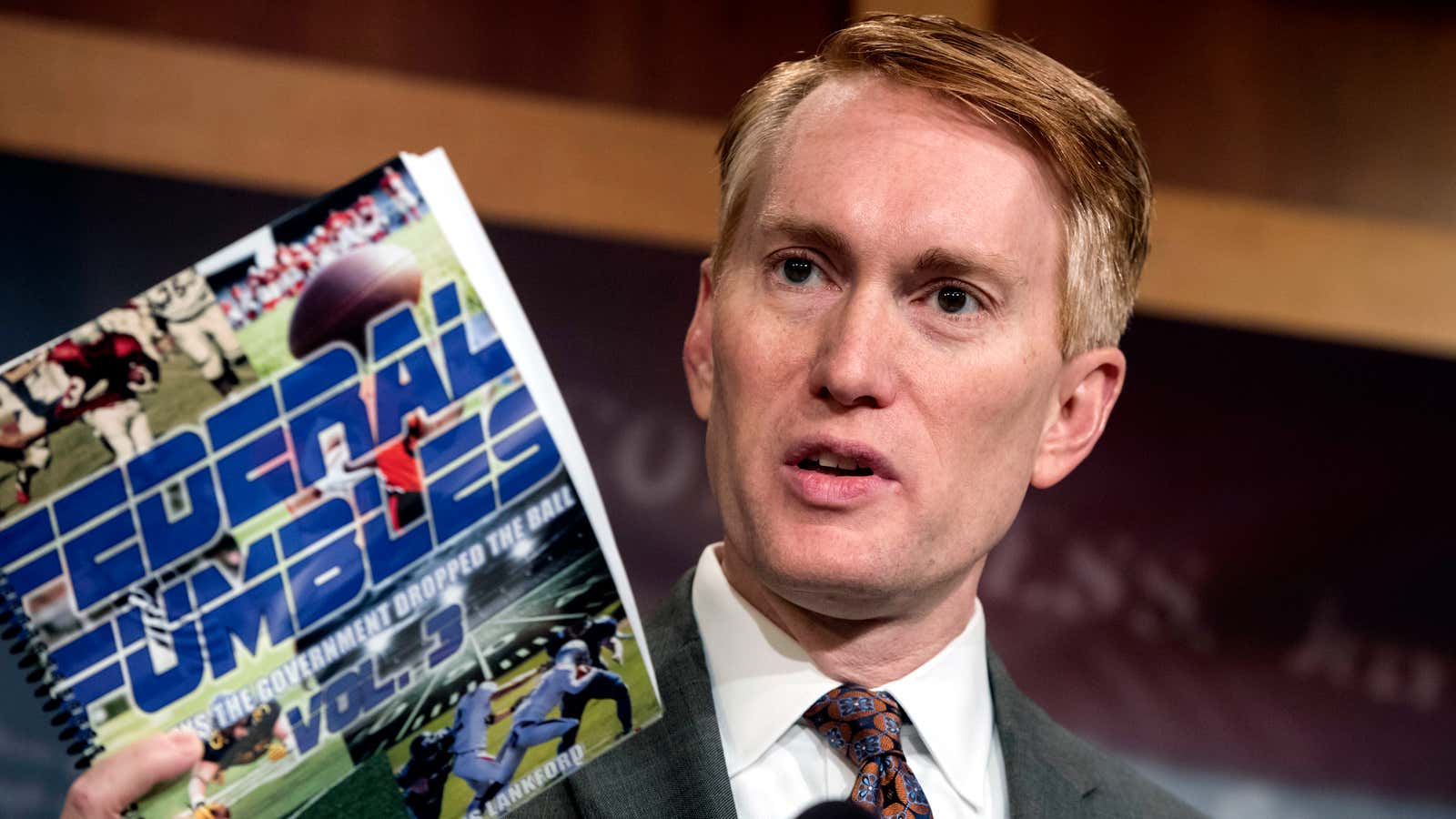Republican leadership in the senate wants a Nov. 30 vote on a tax bill that will lower the incomes of working people while delivering big tax cuts to the highest earners. Since they have ruled out cooperating with Democrats on the bill to pass it on party lines, losing just three votes means the bill will fail.
Here are the eight senators whose public wavering makes them potential “no” votes, if majority leader Mitch McConnell can’t make a show of addressing their concerns.
The Pass Through Pals: Ron Johnson and Steve Daines
These senators, from Wisconsin and Montana respectively, are the only two senators to oppose the bill as written. They aren’t happy with how the legislation treats business income that individuals “pass through” on to their income tax returns, a group that includes many small businesses but also lots of high-net worth individuals. Most famously, The Trump Organization operates as a pass-through.
These two are miffed that big corporations doing business internationally will pay lower taxes than domestic firms organized as pass-throughs. But both have said that more favorable treatment for these businesses will bring them over to the yes side.
The only problem? Doing so will increase the cost of the already debt-laden bill, which will mean making up the difference elsewhere—by raising taxes elsewhere or borrowing more, which could lose other votes.
The Debt Trigger Twins:
Bob Corker and James Lankford
These senators, from Tennessee and Oklahoma, are publicly fretting about the debt associated with the bill. Its backers, like White House adviser Gary Cohn, have claimed that economic growth caused by the new tax policies will generate enough new revenue to make the bill essentially free. Independent analyses from several different sources suggest that this is wishful thinking; the bill won’t boost growth much and will thus leave the US saddled with more debt.
Corker and Lankford have both floated writing “triggers” into the bill that would automatically raise taxes again if the debt starts to rise. This might be a tricky task to accomplish, and could also weaken the enthusiasm of other Republicans who want to make these tax cuts permanent from the get-go. And, while he has yet to talk about triggers, Kansas senator Jerry Moran has been hearing from constituents worried about debt-financed tax cuts and expressed his concerns about the cost of the bill.
The Arizona Antagonists: Jeff Flake and John McCain
The two Republicans from Arizona have been critical of Donald Trump’s presidency and aren’t likely to be worried about political concerns, with Flake retiring and the 81 year-old McCain battling cancer. Both style themselves as “debt hawks” who would like to avoid increasing the debt, and say they have concerns with the gimmicks that allow the bill to avoid a Democratic filibuster. Still, they are conservatives who like the idea of tax cuts quite a bit, and its hard to say where they’ll draw the line on the debt. McCain has only said that “a lot of things” concern him about the bill.
The Mystery from Maine: Susan Collins
Alongside McCain, the senior senator from Maine helped kill Obamacare repeal earlier this year. Now, the senate’s tax bill terminates the individual mandate requiring Americans to purchase health insurance, which would allow the government to save money by subsidizing health care for fewer people. The individual mandate is considered key to the functioning of Obamacare, and canceling it is likely to increase the cost of health insurance premiums.
Collins has worried publicly that the increased cost of health care for working people will cancel out their tax cuts, which is exactly what the Congressional Budget Office says it will do. But Collins hasn’t said that this means she will definitely vote “no” on the tax bill. She’s hoping to win a tax deduction for the first $10,000 in local property taxes—this is a measure favored by the House of Representatives, but it’s an expensive one that will make it harder to give bigger cuts to Johnson and Daines.
Moran and McCain have both expressed concerns about taking major action on health care policy in the midst of a tax overhaul.
Where’s Lisa Murkowski?
The senior senator from Alaska was also a “no” vote on Obamacare repeal, showing she’s willing to buck her party. This time around, McConnell has figured out how to keep her in the yes camp: The tax bill is expected to include a provision to green light oil drilling in the Alaska National Wildlife Refuge, a long time priority for the state’s politicians. If ANWR drilling is in the bill, expect her to back it.
